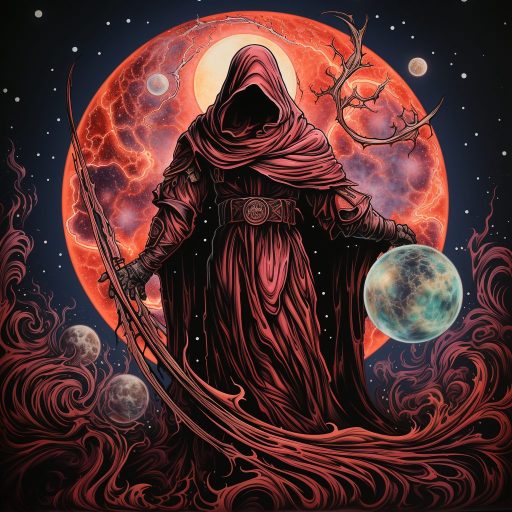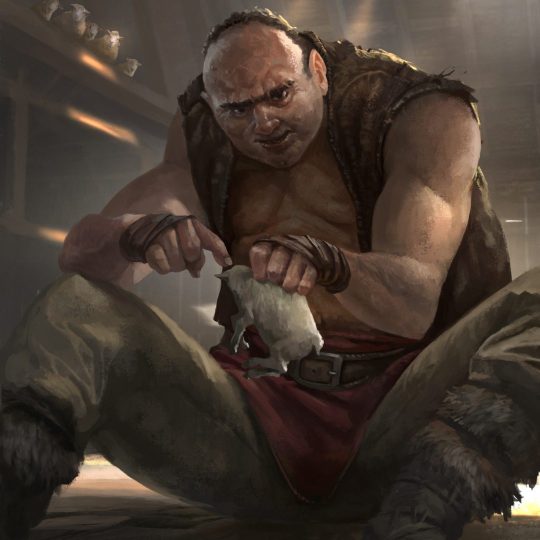
Running a Superhero RPG
It’s a time for masks and mayhem and for me this means superheroes! Superhero flavor can be found everywhere, even in more rigid tabletop roleplaying game systems like fifth edition Dungeons & Dragons. What are Critical Role’s Mighty Nein or Vox Machina, if not superheroes in their own worlds? I’ve often thought many homebrew campaign settings feel a lot like fantasy superheroes in worlds where being super is more about aspiration and power development than power inaccessibility. But some people just want the unabashed superhero flavor in their RPG campaigns. Yet many Game Masters I’ve talked with don’t know where to start when it comes to supers.
Getting started with RPG superheroes
Recently I talked about running superhero games over on my YouTube channel. Superhero games are so much fun and they’re much easier to run than people realize. That being said, don’t let this encourage you to slouch or slack off on your development of the game because superhero games require just as much worldbuilding as fantasy. Let’s talk about things to consider when running a superhero game for your table!
Powerful origins
A good place to start is the beginning. Specifically, how do people come by powers in your world? Are super powers something people are born with, like the X-Men, Alphas or heck, sorcerers in D&D? Did your heroes have some sort of science fiction accident, like Callisto 6, the Fantastic Four or the Tick? Sometimes super powers draw on fantasy, with monsters being real and magic being a clandestine truth of the world. Figuring out how people acquire power in your setting is super important (pun intended, and no, I’m not sorry). This is because it sets up rules for the world at large.
One of the biggest reasons it’s important to ask how people acquire power in your world pertains to the fact they’re likely to encounter others with power in the setting, whether it’s supervillains trying to destroy the world, governments trying to keep power for themselves or maybe orders fearful of those who are different. Knowing who else in the world has powers is going to help you know how many people in the world have these powers, what their experience with them is and how the world develops in response.
Knowing how people acquire their powers is huge, because if people have to be skilled in something like martial arts, technology or magic to gain power, that’s a very different scenario from the random teen whose outburst against a bully resulted in the bully being burned alive accidentally. If people can come by power in your world by accident or as a fluke of nature itself, this will wildly shape the public’s view and likely skew people toward mistrust of strangers.
From Metropolis to Mars
Another key thing to consider when running a superhero game is what the world looks like. Are you setting things on Earth? If so, are we talking alternate history, alternate modern or potential future? If we’re not in a version of our world, what world are we in? Genre splicing with superheroes gets really interesting really quickly.
I’d argue Avatar: the Last Airbender and its sequel The Legend of Korra are both technically superhero stories set in fantasy settings, with Korra melding in some steampunk for good measure. This is because the world itself accommodates a whole magic system where people can control one of the four elements (fire, air, water, and earth), but the avatar is the only one who can wield all four elements and they’re also (implied to be) the only one who reincarnates.
Speaking of the Avatar setting it brings up another interesting point by presenting a world in which the villains must rise to match the power of the hero, despite the fact that technically the hero is the only one who’s truly super. In your own superhero game are the main characters the only ones with powers?
Shows like Alphas, Firefly and The Chilling Adventures of Sabrina also present worlds where super people or people with power discrepancies exist. In each case they splice one or more additional genres with the superhero elements and not everyone in the main cast is super.
It’s entirely possible to run a superhero game in which not everyone has super powers. Sometimes it’s the characters without powers or a mask who make the media most interesting (looking at you, Alfred Pennyworth).
Knowing who has powers, why and how are all crucial to determining your world’s response to the existence of superheroes. Are they revered or feared? Maybe the majority of the world develops powers, like what happens in My Hero Academia. Perhaps your heroes have no powers and are fighting to stave off those who corrupt themselves with them, much like Batman and his rogue’s gallery?
Mentioning Batman also brings up another interesting point: secret identities. Do people have alternate or secret identities when they have powers? Is it for protecting others (like with Spider-Man and Static) or is the alternate identity more about having a public face (like Tiger and Bunny or My Hero Academia)?
While these are all very important things to consider I would argue there is a single bit you need to answer that’s even more important.
Choosing an RPG system
When it comes to superheroes many powers aren’t neatly defined by game rules. Technically you could run any system with any flavor, sure. But if you run a system where you know the rules support your vision for the campaign and the world at large you’re likely to be much happier, and your players will thank you for it too because they’re likely imagining the ability to do literally anything when it comes to superheroes. Some of my personal favorites for running a supers game include:
- Cypher System — When it comes to versatile and adaptable, I’m not sure I can make a stronger case for anything aside from Cypher System. The very fundamentals of how you build your character reinforce versatility with elegance. The simple format of describing your character as an [adjective] [noun] who [verbs] is so simple, yet spot on for developing a game in any genre.
- Savage Worlds — Savage worlds is another genre agnostic system with a very open ended model for designing characters. Using a deck of cards to play poker as a magic system might turn some people off but the system’s core is good and someone with the mechanical chops could likely replace the card mechanics to brilliant effect if they wanted. Also, something about using all the polyhedral dice except the d20 intrigues me.
- Mutants & Masterminds — Okay, now we’re talking! A system literally designed for running a superhero game! This system does have a touch of a learning curve but once you understand the few core mechanics, everything slots neatly into place in a way that can only be described as intuitive. This system offers probably the greatest flexibility in terms of power development and flavor through mechanics. While it does more or less necessitate all players run superhero characters of some variety I don’t necessarily consider this a negative, especially when you consider you couldn’t possibly play every combination of powers in the game within a single lifetime.
- Open Legend — Open Legend is another genre neutral system on this list. The game does have a learning curve but its versatility and mechanical crunchiness is right up there with M&M. Open Legend does seem to favor genre splices pretty strongly and if you have a player who wants to play a non-superhero this system offers the balance between M&M and Cypher you’re likely looking for. The exploding dice mechanic also feels right at home in a superhero game, with its absolutely ridiculous ad infinitum clause allowing you to roll the dice forever if you got… super lucky (I’ll quietly contemplate the consequences of my puns in a corner, now).
What do you think?
Have you run a superhero RPG? What system do you prefer and how did it work out? We want to hear from you in the comments!









No Comments